Dehydrating food is undoubtedly the best way to retain incredible food flavors.
Did you know that the process comes with a plethora of other benefits? Our detailed guide shares 17 amazing benefits of dehydrating food using a food dehydrator.
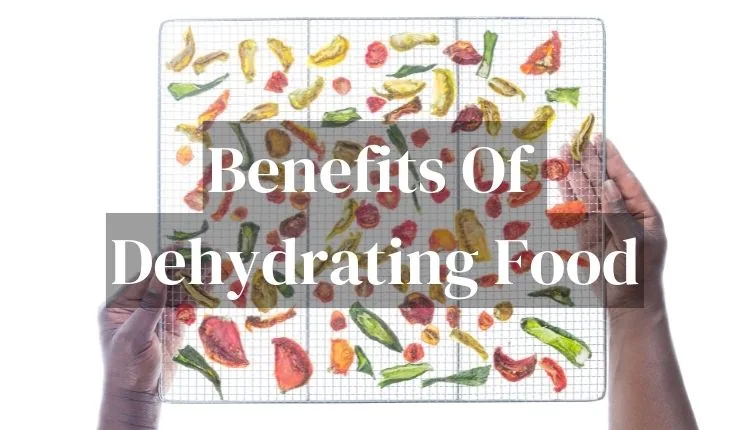
Pros of Dehydrated Food
In a split second, you can probably figure out several advantages of dehydrating food that go beyond flavor enhancement. However, dehydrating food offers many benefits, some of which you never imagined.
This quick, flawless process involves the removal of moisture and water content from food, drying it up, and enhancing its versatility. In fact, this food drying process has been used by various cultures for centuries to help preserve food.
The only difference is how diverse the process has become. The best part is you can dehydrate food of multiple options, whether vegetables, fruits, and even meat.
You can dehydrate your food using a selection of methods including sun drying and the more convenient, dehydrator. So, before you splurge on a brand new dehydrator to take out on a spin, check out these incredible benefits of dehydrating food to make full use of your investment.
1. High Nutrient Concentration

Dehydrated food is favored among other food preservation options due to its incredible nutrition-saving advantage. Compared to processes like freezing or canning, food dehydration losses very minimal nutrients.
For example, canning food can lose up to 60% of the nutrients while food dehydration will lose 0 to only 5%. Many people opt for dehydration to help retain most of the original vitamins, minerals, and natural food enzymes without adding any extra components.
Surprisingly though, fruits and berries like cranberries, plums, and grapes offer twice to three times as many antioxidants as fresh ones. Moreover, in general, most dried fruit have a concentrated fiber and antioxidant content as the water and moisture are pulled out from them.
Therefore, they make great go-to food options for a power-packed supply of fibers, antioxidants, vitamin C, beta carotene, and iron. Remember, the process of dehydration pulls out all the water and moisture, therefore, significantly reducing the original size of the food.
Instead, it increases the flavor and dry content concentration – including sugar, in the case of fruits. With a higher fruit sugar concentration, you can eat fewer fruits while getting the same amount of energy you would from fresh ones.
Keep in mind, however, that the high sugar content of the fruits can increase your weight if you’re not mindful. You have to control your portions especially if your day doesn’t involve you being active.
2. Equally Incredible Flavors
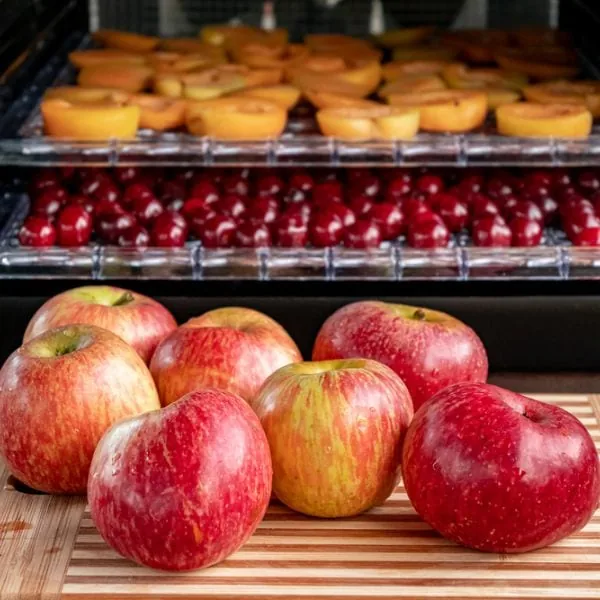
Removing the moisture and water from food not only concentrates its nutrients. It also helps to unleash and intensify its flavors.
This allows you to enjoy dehydrated food on its own or added to other dishes as an ingredient or seasoning. Think kale chips, dried strawberries, or dehydrated garlic powder as examples!
3. Zero Chemicals
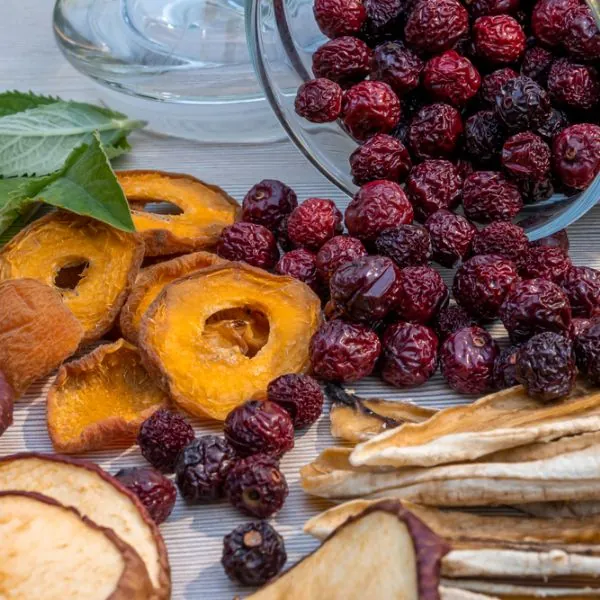
In addition to the packed nutrients and intensified flavors, dehydrated food comes with the advantage of zero added chemicals. After all, you can dehydrate your own food from the comfort of your home using the traditional sun drying process, oven, and more straightforward special dehydrator.
Dehydrating food at home doesn’t require much – all you need is the food you intend to dehydrate (and natural spices or herbs if you want to add seasoning for raw food like meat). This means that your food will be free from chemicals like preservatives, additives, binders, and any other factory-made/synthetic components.
4. Longer Shelf Life
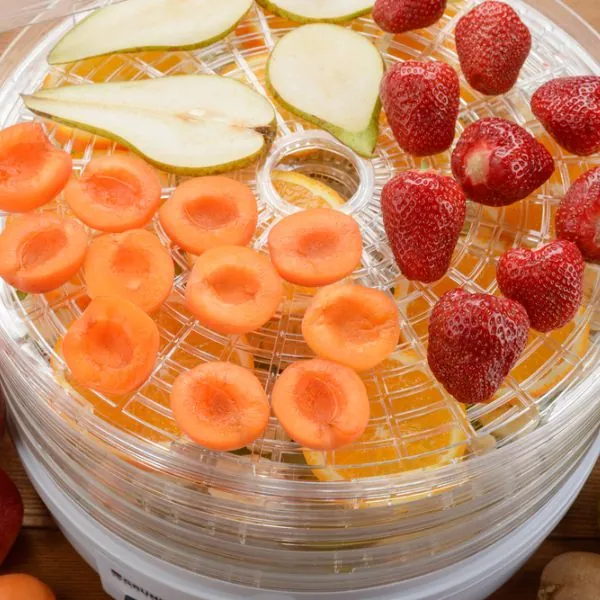
Even without the preservatives or other added chemicals, dehydrating food from the comfort of your home still gives it long shelf life. Removing the water and moisture content of the food through the dehydration process creates an unsuitable environment for bacteria and other microbes to thrive.
In turn, this prevents food spoilage, allowing it to last longer. Depending on its chemical makeup and the storage temperature (will last longer in cooler climates), dehydrated food will last anywhere between two weeks and four years on your kitchen shelf.
You also want to think of the structure of the food. For example, ground or powdered dried garlic will last longer than a whole dried garlic bulb or clove.
However, you have to be careful with the storage of your food. Storing dehydrated food in a moist area can risk slowly rehydrating resulting in reduced shelf life and even spoilage.
Here’s how long different dehydrated foods last outside a refrigerator or freezer at room temperature:
- Dehydrated fruit: 6 months to 1 year
- Dehydrated vegetables: 4 months to 1 year
- Dehydrated herbs and spices: 1 to 3 years
- Dehydrated meat: 2 weeks and up to 5 years in a vacuum-sealed package
- Dehydrated chicken: 1 to 2 months
5. Bulk Up on Food Supplies
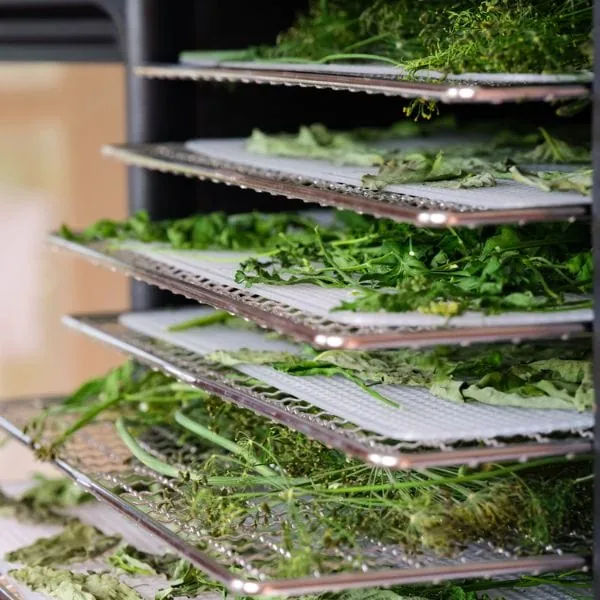
With a longer shelf life, dehydrated food makes your shopping life easier. You can bulk up and stock up more on your food supplies at a bargain without worrying about spoilage.
Hey, you can even start a small dried food business since commercially available dried food can be somewhat costly.
6. Easy Storage
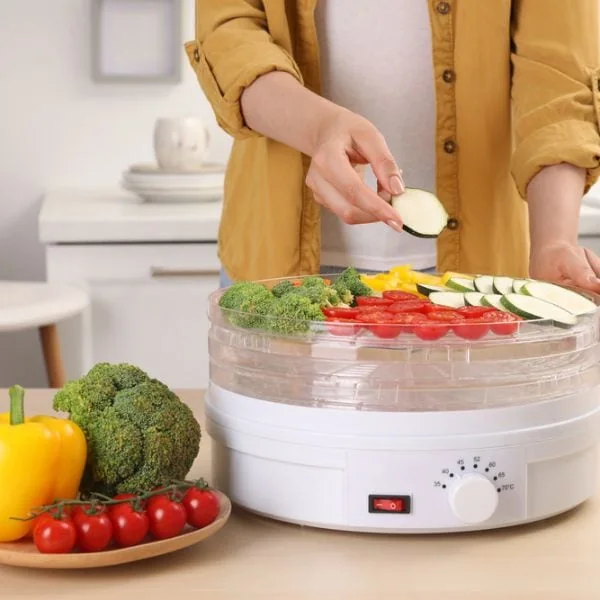
One of the most prized features of dehydrated food is the ease of storage they offer. The dehydration process pulls out water and moisture from food which brings out two key advantages.
First, the removal of water and moisture inhibits the growth of bacteria, helping to preserve it for longer. Secondly, the water removal shrinks the original food size, significantly reducing the amount of storage space it requires.
Ultimately, you will have longer-lasting food that requires very little space to store. Dried food keeps very well in small containers like mason jars and vacuum-sealed bags (for even longer storage) that keep well in your kitchen shelves and cabinets.
Pro tip: Place silica gel inside your cabinets or storage containers to prevent moisture from diffusing into your food.
7. Cost-Effective
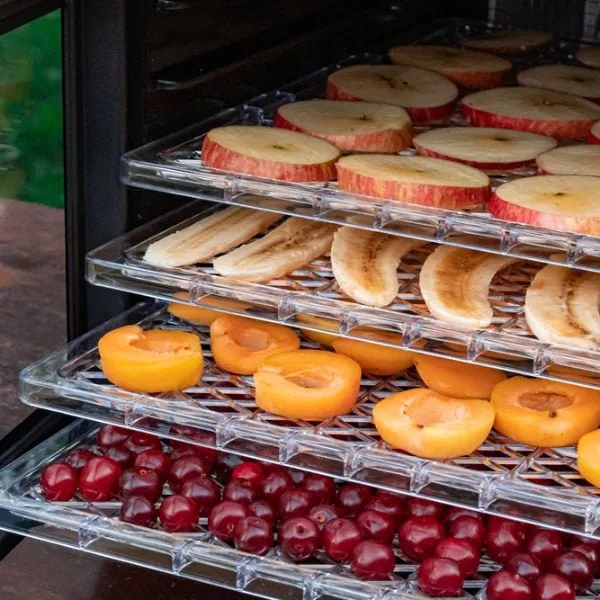
Dehydrated food is quite cost-effective, from scratch to storage. The dehydration process doesn’t require you to do much – simply slice the food, blanch (if needed), and load it up into the dehydrator.
This means that you don’t have to go through any costly prep process. However, it’s not only the dehydration process that makes it cost-effective, the whole idea of incorporating dehydrated food into your diet makes it cost-effective.
You can buy bulk food if you intend to dehydrate it, which means you will get it at a discounted rate. Moreover, with a bulk food supply, you will enjoy fewer trips to the grocery store and save more time.
Plus, you can enjoy premium gourmet foods like sun-dried tomatoes or seasoned dried beef at the fraction of the cost of what you’d spend at a grocery store.
8. Time-Saving
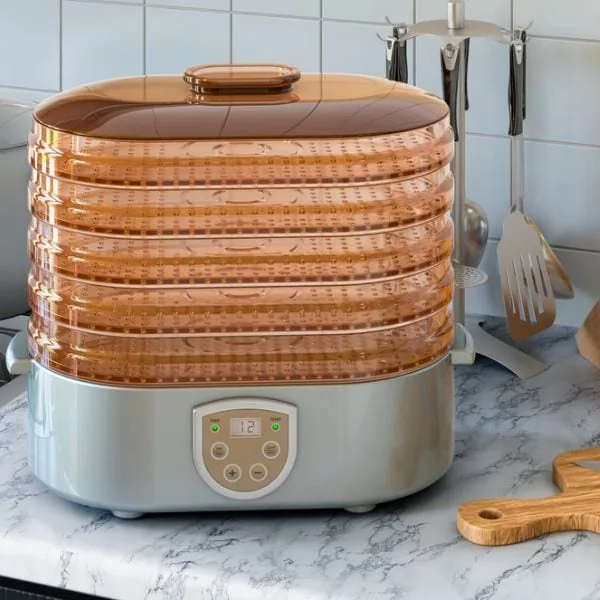
Dehydrating food is equally time-saving as it is cost-effective compared to other preservation methods. When compared to methods such as freezing and canning, dehydration and the latter are more at par with each other due to the long-lasting shelf and the nutrient-dense results they offer.
However, food dehydration is a less time-consuming and cumbersome job than canning. In fact, its simple foolproof process means anyone can do it with minimal chances of messing up.
Canning involves sterilizing the canning jars and preparing the sometimes complex canning sauce or syrup. Dehydrating, on the other hand, simply involves washing, and blanching before tossing the food into the dehydrator so it can do the rest.
9. All-Year-Round Availability
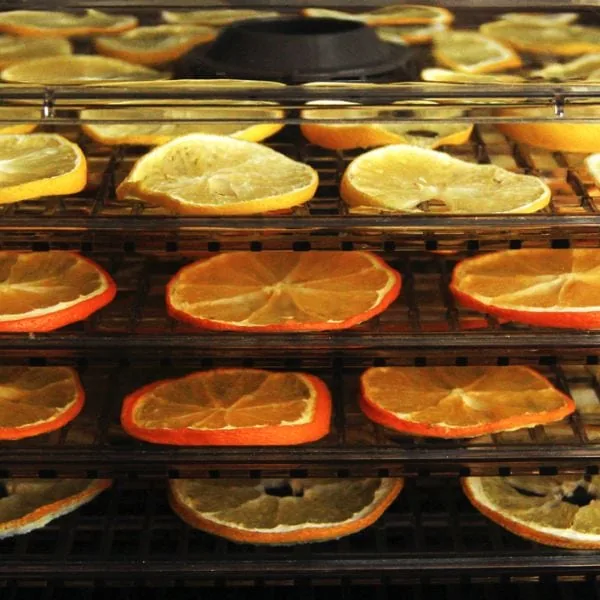
Drying your food allows it to keep all year round. This allows you access and affordability to seasonal foods so you can prepare the meals you want at any time of the year.
You don’t have to wait for the summer to fall seasons to enjoy flavorful strawberries or pineapples or the cold season to enjoy winter crops. In turn, you will enjoy more quality food at its peak all year round.
10. You Can Hydrate Almost Anything
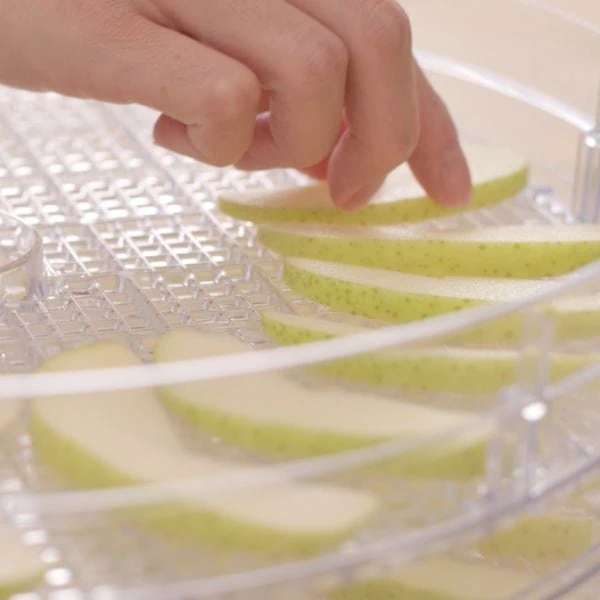
The best part of dehydrating is that you can do it with almost anything.
You can dehydrate fruits, vegetables, meat, herbs, and spices to name a few. My favorite part of dehydrating food is how unrestrictive it gets – you can dehydrate even foods you thought you never would!
For instance, you can pre-rub meat with your favorite herbs or spices before dehydrating it. Similarly, snacks like kale or zucchini chips don’t have to be boring either. Before dehydrating them, you can season them with your favorite blend of spices.
Furthermore, you can get versatile with the food you dehydrate. My personal favorite is how you can make pasta from scratch, dehydrate it, and store it on your kitchen shelves for as long as you would with store-bought pasta.
The best part about this is that you can go any direction with your pasta – curate beautiful flower-shaped shells for a pasta salad and pre-season it with oregano and basil if you want. The possibilities are endless.
Similarly, you can make your own bread and dry them to use as stuffing or breading. Again, unlike store-bought breadcrumbs, homemade dehydrated bread can have its fair share of seasoning and flavor enhancers.
For example, you can curate your own special blend of dry rub herbs and spices for meat, helping you save significantly on gourmet spices at the grocery store.
Pro tip: This is another great perk for the business minded – You can turn your artistic food-making passion into a money-making business. Think gourmet pasta or zesty BB spice rubs!
11. Endless Cooking Possibilities
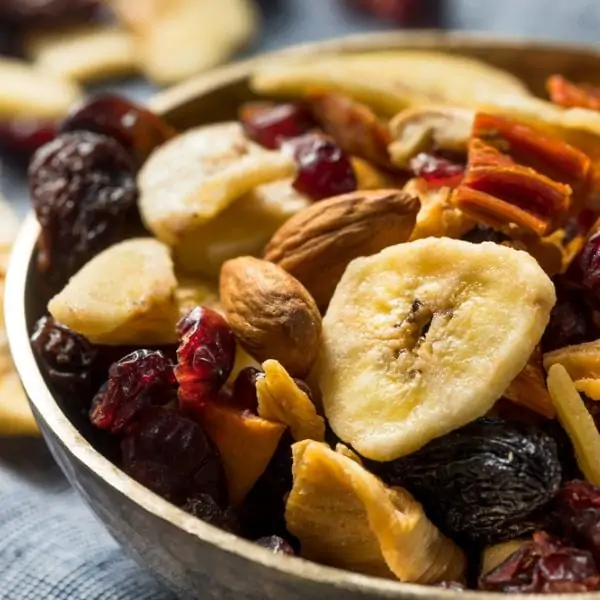
Dehydrating food gives you the same versatility in meal preparation as you would enjoy in the actual dehydrating process. Just because your ingredients are dry, it doesn’t mean you can get creative with your meals.
In fact, dehydrated foods allow you to really put your creative cooking prowess into action. For example, you can experiment with uniquely seasoned soup by adding a blend of unusual ingredients like dried tri-colored bell pepper powder or try out a sensational meaty pasta dish using a mix of dried ground beef and lamb pre-seasoned with a spice blend.
The best thing about creating such dishes is you don’t have to spend hundreds of dollars at the grocery store for just a one-time meal. After all, this is the food you will have readily available in your home all year round since it keeps well.
12. Great For Travel
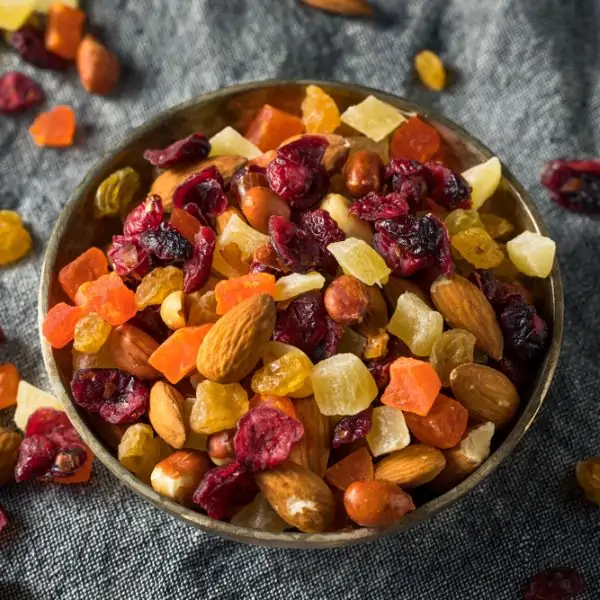
Dehydrated food is also great for travel, revolutionizing healthy eating during travel. Dehydrated food comes in quite handy for travel, especially in outdoor and limiting circumstances like backpacking, camping, hiking, and mountaineering.
It’s not only the long shelf life that makes dried food excellent for these circumstances. Features like the reduced weight and packability make it easier to bulk up on food for easy travel without worrying about adequate supply.
For example, a small Ziploc bag of fruits you can stash in your backpack gives you enough supply to last you a few days and ensures you receive the same nutrients as you would from a basket of fresh fruits. Similarly, you can enjoy flavorful dishes in the wilderness the same way you would at home.
You don’t have to stick to boring packet soup the next time you go backpacking or hiking. Get creative with regular food – you can add a blend of home-dried mushrooms, flour, dried sun dried tomatoes, dried onion powder, and even grains for extra punch, creaminess, and nutrition to scratch-made soups.
13. Great for Specific Diets
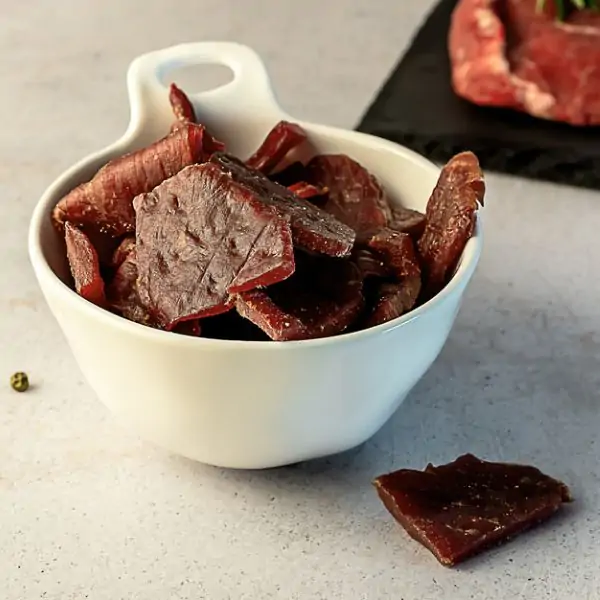
Dehydrated food allows you to enjoy sustainability in sticking to a specific diet. It particularly works perfectly for people who choose to stick to a plant-based diet.
With fruit and veggies of all seasons available all year round, you can enjoy endless options of meals and snacks. Plus, you don’t have to worry about nutrition.
After all, dehydrated food guarantees a high nutritional value.
14. You Can Prepare More Than Just Food
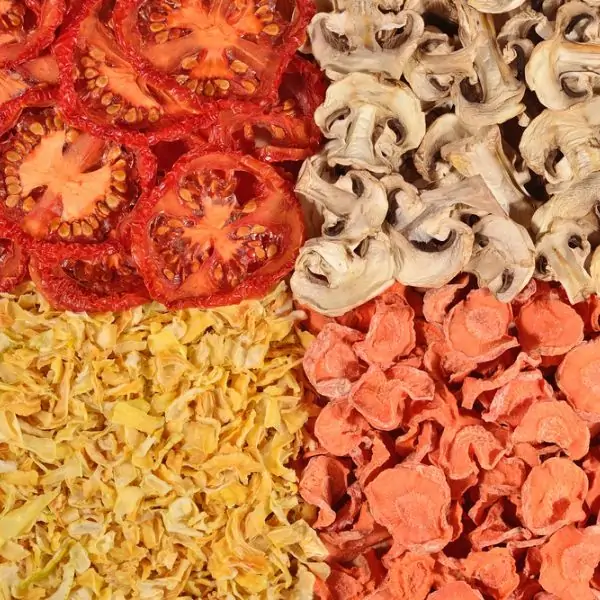
Dehydrating lets you get creative with more than just regular food. It truly is a lifestyle!
Here are a few examples of how creative and handy dehydration can be:
- Dehydrated wine: Makes fun snacks like wine-infused fruit leather
- Dehydrated organ meats: Season them with spices to make your pet‘s favorite treats
- Dehydrated citrus fruit peels: Create excellent fire starters and can add flavor to your BBQ by mixing it with your wood in a fire pit. Think hickory and mandarin skin!
- Dehydrated French toast or vanilla pancake: Cut it into small bite sizes or powder it for a delicious and unusual dessert topping.
- Dehydrated edible flowers: Make great cake decorations, teas, and even infusions for oils, honey, butter, and vinegar. You can even combine several types of flowers to make pleasantly smelling homemade potpourri for your sunroom.
- Dehydrated herbs: Can be used in cooking or even more fun items like antiseptic hand soaps, calming candles, and odor neutralizers.
15. Low Risk of Bacteria and Contamination
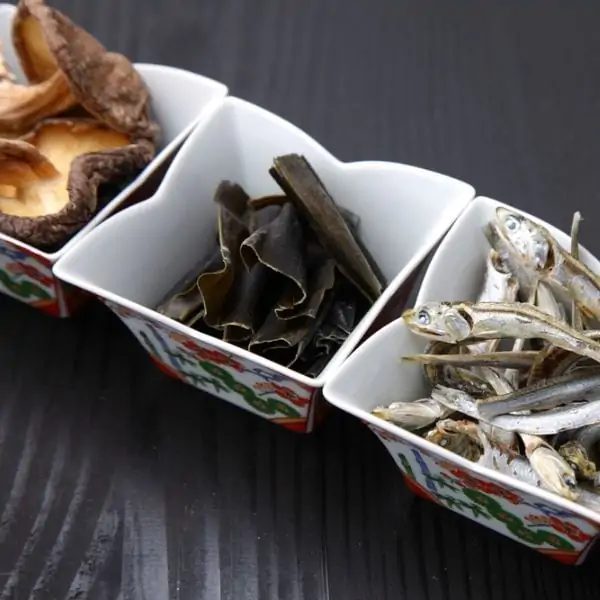
Compared to other preservation methods, dehydrating food offers the lowest risks of bacterial and fungal growth as well as contamination. This is because the process pulls out all the water and moisture from the food.
Now, microbes like bacteria and fungi thrive in moist conditions. So, with the lack of moisture and water, microbes fail to thrive, allowing your food to keep for long without any spoilage.
For example, dehydrated foods like beef jerky allow you to enjoy meat anywhere and anytime without worrying about spoilage.
Pro tip: Make sure to store food in moisture-free conditions (like moisture-proof containers or use silica gel) to prevent the food from rehydrating. Remember, the biggest threat to dehydrated food is moisture, which can lead to microbial growth and contamination.
16. Reduced Waste
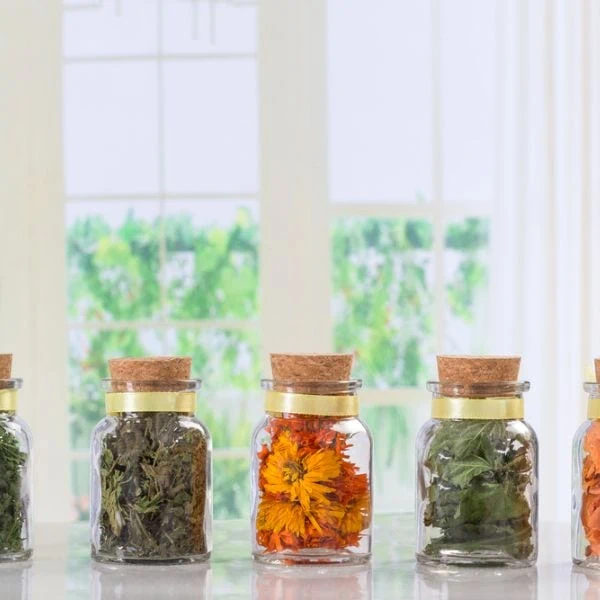
The best part of using dehydrated food for your meals daily is the incredible job it does to reduce waste. Imagine the waste you have to deal with fresh vegetables, fruits, and packaged ingredients.
Dehydrating food to last you a while means sustainable storage in jars and Ziploc bags. So, every time you cook, all you have to do is dip into the containers for the day’s meal portion without having to discard any packages or peels.
Additionally, since dehydrated food doesn’t go bad, you don’t have to worry about throwing away ripe vegetables and fruits or too much produce you haven’t used.
17. Great for Emergencies
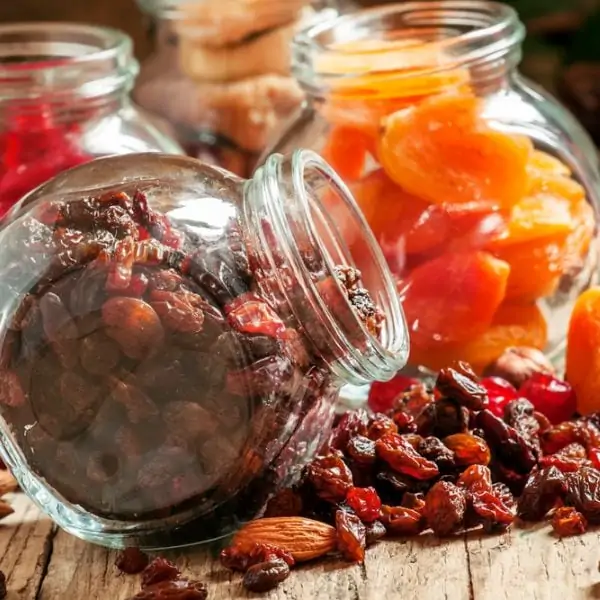
Since dehydrating food keeps well, it makes excellent emergency food.
Whether it’s a tough financial month, power outages, or a natural disaster, dried food can really come to the rescue. Unlike canned food, it is lighter and has an even longer shelf life.
Pro tip: To make it even easier for you during emergencies, prepare healthy snacks like fruits that give you energy for longer. Plus, instead of dehydrating separate ingredients, dehydrate complete meals to make it easier and convenient for you during emergencies.
After all, all you have to do is add water and enjoy a nutritious meal.
Conclusion
The benefits of dehydrating food are certainly endless. Compared to other preservation methods, dehydration is inexpensive and simple, whether it’s investing in a dehydrator or working on the actual recipes.
Moreover, compared to methods like canning and freezing, dehydration is highly versatile – you can dry anything from simple vegetables to complex meals. Plus, for the creatives, dehydration lets you go a step further to truly curate your favorite things.
No more spending money on your favorite sun-dried tomatoes or therapeutic lavender-infused oils. You can do all that from the comfort of your home.
Surely, any of the 17 incredible benefits of dehydrating should be the reason to get you started with drying your favorite foods.





Donaldina is a home cook and writer who enjoys experimenting with different flavors. She loves to take her readers on a fun-packed, palate pleasing journey through different recipes. Along the way she recommends the best equipment and tools to prepare tasty meals. Enjoy the adventure!